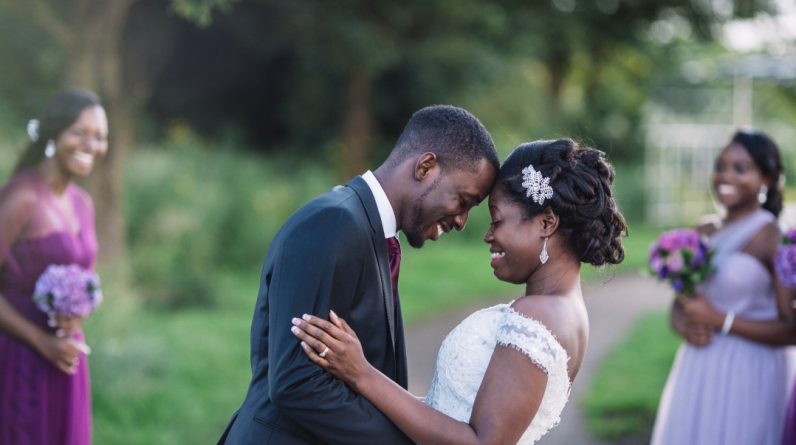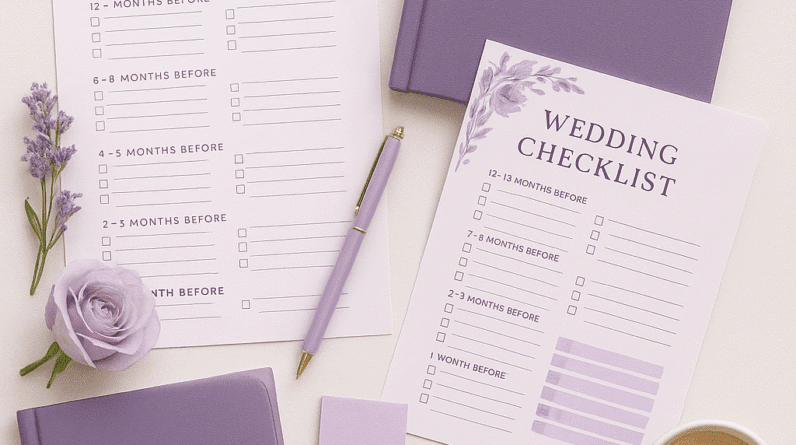
How to Work Out Your Wedding Budget
How to Work Out Your Wedding Budget is one of the most critical steps in planning a successful and stress-free wedding. Without a clear budget, costs can quickly spiral out of control, leading to anxiety and last-minute compromises. The problem many couples face is underestimating expenses, overcommitting financially, or simply not knowing where to begin. Fortunately, with a strategic approach, you can create a realistic and flexible wedding budget that aligns with your vision and financial comfort.
Start with Your Total Budget: Know What You Can Spend
Before diving into any details, determine the total amount you’re comfortable spending. Sit down with your partner and any contributing family members to establish a clear number. This will be the foundation for all future planning decisions.
- Personal savings
- Contributions from family
- Monthly income allocations
- Potential side gigs or financial boosts
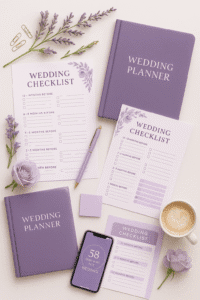
Break Down Your Wedding Budget by Category
Now that you have your total budget, break it down by category using percentages. This method ensures every aspect of your wedding is accounted for.
Common Wedding Budget Categories:
- Venue and Catering: 40–50%
- Photography and Videography: 10–15%
- Attire and Beauty: 5–10%
- Flowers and Décor: 8–10%
- Entertainment: 8–10%
- Stationery: 2–3%
- Transportation: 2–3%
- Favors and Gifts: 2–3%
- Miscellaneous/Emergency Fund: 5%
Prioritize What Matters Most
Every couple has different priorities. Do you dream of a designer dress, or is live music your must-have? Rank each budget category by importance to help allocate funds accordingly.
Tip:
Make room for at least one splurge item—this will help you feel excited about your choices without breaking the bank.
Research Actual Costs Based on Location
Prices can vary dramatically based on your city, venue type, and time of year. Get quotes from multiple vendors and compare.
Use These Tools:
- Local wedding forums
- Budget calculators
- Vendor comparison websites
Track Every Expense and Adjust Accordingly
Set up a spreadsheet or use a wedding budgeting app to track every payment. Always include taxes, tips, and hidden fees.
Pro tip:
Add a 5–10% buffer for unexpected costs. Surprises happen—be prepared.
Don’t Forget These Commonly Overlooked Expenses
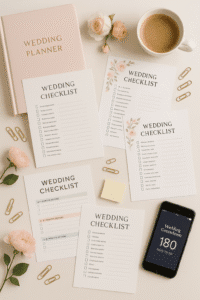
Many couples forget these until the last minute:
- Marriage license fees
- Dress alterations
- Vendor tips
- Hotel accommodations for the wedding night
- Postage for invitations
Consider Cost-Saving Alternatives
Weddings don’t have to be lavish to be beautiful. Here are some ways to cut costs:
- Choose an off-peak date
- Opt for buffet over plated meals
- DIY décor or invites
- Rent instead of buy
Final Thoughts on How to Work Out Your Wedding Budget
Knowing how to work out your wedding budget is the secret to planning with confidence and joy. With clear priorities, smart planning, and diligent tracking, you can craft a wedding day that’s both magical and financially sound. Ready to take the next step?
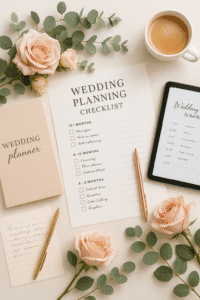
Would you like to generate SEO-friendly titles and descriptions?
Our advice on wedding budgeting is that it’s more important than ever to have frank discussions with your suppliers, and in writing, so you know where you stand financially if you cancel/postpone your wedding. Some couples prefer to plan for multiple outcomes (Plan A, B and C), which means multiple budgets. A larger-than-usual contingency fund of 15% (see below) is a good idea, as many couples tell us that their ability to save money has been curtailed. Be meticulous with your record-keeping, and you should be in a good position to adjust your budget along with your plans, if needs be.
1. Determine Your Total Budget: Before you start planning your wedding, it’s important to determine your total budget. This will help you decide how much you can spend on each item and help you stay on track.
2. Prioritize Your Spending: Once you have your total budget, it’s time to prioritize your spending. Decide which items are most important to you and allocate more of your budget to those items.
3. Break Down Your Budget: Once you have your priorities in place, it’s time to break down your budget into individual items. This will help you keep track of how much you are spending on each item and make sure you stay within your budget.
4. Track Your Spending: As you start to book vendors and purchase items for your wedding, it’s important to track your spending. This will help you stay on top of your budget and make sure you don’t overspend.
5. Make Adjustments: As you go through the planning process, you may need to make adjustments to your budget. If you find that you are overspending in one area, you may need to cut back in another area to stay within your budget.
FAQs on Wedding Budget to help couples navigate one of the most important aspects of wedding planning:
1. How much should I budget for my wedding?
It depends on your total financial situation and wedding vision. The average U.S. wedding costs around $30,000, but you can plan a beautiful event for far less with careful planning.
2. What percentage of my budget should go to the venue?
Typically, 40–50% of your wedding budget should be allocated to the venue and catering combined.
3. How do I determine my total wedding budget?
Combine your savings, any family contributions, and realistic additions from your monthly income. Set a cap based on what you can afford without incurring debt.
4. What are hidden wedding costs I should plan for?
Common hidden costs include:
- Taxes and service charges
- Vendor tips
- Marriage license fees
- Dress alterations
- Postage for invites
- Overtime charges
5. Should I hire a wedding planner if I’m on a tight budget?
If your budget is tight, consider hiring a day-of coordinator instead. Planners can save money by negotiating vendor deals, but DIY planning is more cost-effective.
6. Is it cheaper to have a destination wedding?
It can be. Destination weddings often have smaller guest lists and packages that include venue, food, and decor—but travel costs must be considered.
7. How do I stick to my wedding budget?
Track all expenses in real time, avoid impulse buys, and stick to your priority list. Use budgeting apps or spreadsheets for control.
8. What’s the best way to save money on a wedding?
Top savings tips include:
- Trimming the guest list
- Choosing off-peak dates
- Using local vendors
- DIY elements
9. What’s a realistic budget for a small wedding?
A small wedding can range from $5,000 to $15,000 depending on location and priorities. The key is scaling each category appropriately.
10. Should I go into debt for my wedding?
Avoid debt if possible. Consider creative financing like monthly savings or smaller-scale celebrations to stay financially secure.
11. Can I use credit cards for wedding expenses?
Yes, but use them wisely. Pay off balances immediately to avoid interest. Consider cards with rewards or cash back for extra benefits.
12. How can I get family to contribute to the budget?
Have an open, respectful conversation early in the process. Clarify what each party is willing and able to contribute to avoid misunderstandings.
13. What’s the benefit of setting a contingency fund?
A contingency fund (5–10% of your budget) cushions you against unexpected costs, keeping you from cutting corners at the last minute.
14. How do I prioritize wedding spending?
Identify what matters most—like photography, entertainment, or food—and allocate more money there. Cut back in lower-priority areas.
15. Is it better to pay vendors in full upfront?
Most vendors prefer installment payments. Avoid paying in full upfront unless there’s a strong contract and reputation backing them.





